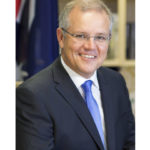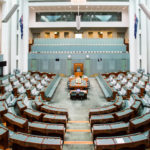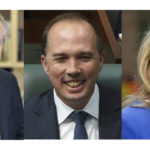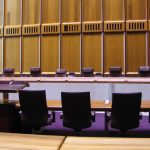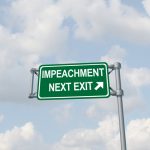Should Politicians Take Pay Cuts?
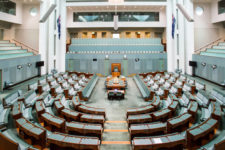
Hundreds of thousands of Australians are out of work or working from home due to the Coronavirus pandemic.
Thousands of businesses have shut their doors, many never to reopen. A large number of these have been built by ordinary Australians through blood, sweat, tears and years of investment.
Even with deferred rental payments, many businesses will accumulate debts which will be impossible to repay when the time comes to reopen.
Thousands have been forced to take unpaid leave, and many have made sacrifices for the good of their businesses, their employees, their employers, their colleagues and the economy.
Which begs the question: Should politicians make financial sacrifices as well?
Federal Parliament shuts down
Last week, the Prime Minister shut down Federal Parliament until August, leaving Australia without a full and proper democratic process for at least five months during one of the biggest crises the country has ever seen.
While locking down Federal Parliament, which has around 220 politicians, can be seen as a safety measure at this time, it’s also sensible to ask why the Government is not actually seeking alternatives to keep Parliament running. Or why Parliament is shutting down while schools are being kept open?
If the justice system can put processes in place to provide remote access for the tens of thousands of people needing the service of the courts, then why can’t our leaders and representatives do something similar?
They are, after all, still receiving their full salaries. They’ll still get a pension when they retire.
By comparison, thousands of businesses coping with a slowed economy or mandatory lockdown, have been forced to reduce employee hours, or let staff go, and are unable to guarantee that jobs will still exist when Australia returns to some sense of normality.
The already long queues outside Centrelink, and its overloaded website which has crashed several times, unable to manage access capacity, tell the full story of the uncertainty that lies ahead for many Australians – the reality of job losses and financial hardship. Many Aussies will dip into their superannuation in the coming months too, to ease the pressure of household bills, which will leave some of them vulnerable in retirement, particularly if it takes a while for investment markets to recover.
Should politicians share the burden?
Finance Minister Mathias Cormann recently announced that Politicians, judges and senior public office holders will not get a pay rise this year, but it’s not quite the same as taking a pay cut.
In the past few weeks Parliament has rushed through a number of law changes in the battle against the spread of COVID-19. Now, more than ever this is a time for swift and resolute action from our leaders, but it’s also a time for robust discussion, and necessary debate, as the landscape quickly changes, new information comes to hand, and the government needs to respond – quickly. Our politicians need to be working together and in constant communication. Instead they’ve disbanded, and there’s no talk so far, of trialling a ‘virtual parliament.’
One of the last things Scott Morrison did before turning off the lights at Parliament House, was to announce a new ‘special commission’ to manage the social and economic impacts of Coronavirus. Essentially, the commission will allow the PM to step away from the day-to-day details.
‘Special Commission’ to oversee the impact of COVID-19
And, controversially, the Commission will headed by former mining CEO Nev Power, and, with mining and gas companies heading for a special exemption from the lockdown, there’s growing public concern that these industries may be afforded more focus or potentially even ‘favourable treatment’ over the coming months when Australians, by and large, have been clear and vocal about their desire for the Federal Government to make policies that take urgent action on climate change, by, for example, transitioning away from fossil fuels, and being more mindful of damage that mining does to the natural environment.
Prime Minister and Cabinet secretary Phil Gaetjens has also been appointed to the Committee. Mr Gaetjens was commissioned by Scott Morrison to conduct a review of how grants were awarded under the Community Sport Infrastructure Program after the Auditor-General found that former Sports Minister Bridget McKenzie awarded grants to a significant number of sporting organisations that were within targeted or marginal electorates, largely ignoring the merit-based assessments of Sport Australia.
The Gaetjens’ report has never been made public, but what The PM has quoted from it, has at times, been criticised for being inconsistent with some of the evidence given to the senate inquiry, and findings from the Auditor-General’s investigations.
And now, with Parliament disbanded, and this group, charged with enormous responsibility essentially reporting straight to the PM, what checks and balances are in place to make sure that decisions are being made to benefit the nation as a whole, not just the vested interest of a few big corporations and mining giants?
While there has been a provision put in place, that: “the House may meet in a manner and form not otherwise provided in the standing orders with the agreement of the Leader of the House and the Manager of Opposition Business, with the manner in which Members may be present (including for the purposes of achieving a quorum) to be determined by the Speaker” there is no detail about how this might actually work as a practical option.
Certainly as some commentators have pointed out, instilling a virtual parliament at this time (even a severely truncated one) would at least ensure that community voices are being heard. The idea that MPs might actually be able to serve remotely, directly from their constituencies, away from the distractions of political maneouvering and the ‘entitled bubble’ that is Parliament House, could actually change our democratic process for the better.



